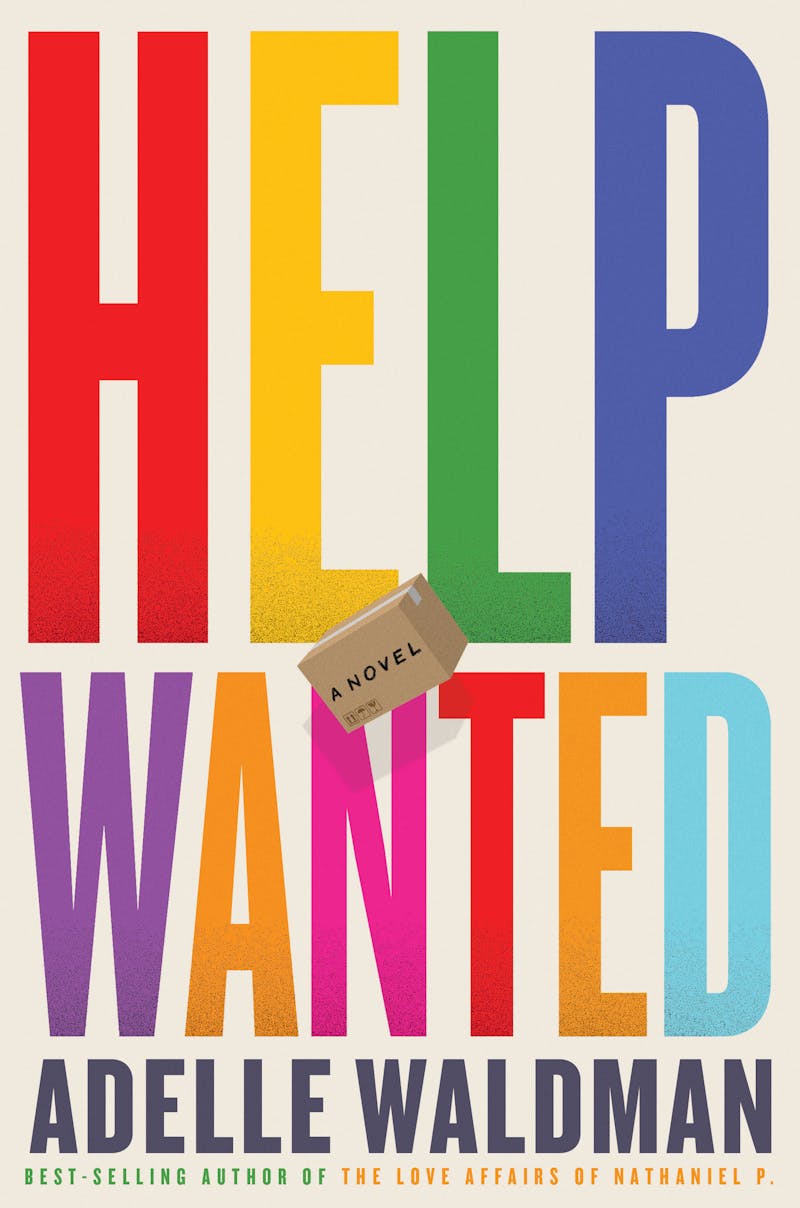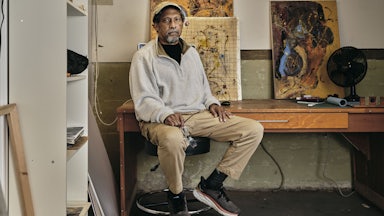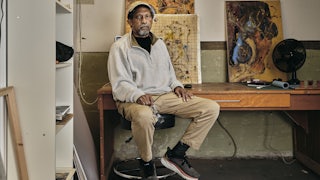In the halcyon days of the mid-2010s, when Barack Obama was president, Roe v. Wade was the law of the land, and Harvey Weinstein’s crimes remained the stuff of rumor, the bête noire of many young feminists was a species of overeducated, ostensibly enlightened man known as the “lit bro.” He was memorably sketched by the writer Molly Fischer in 2015 as a more presentable successor to the literary chauvinists of yesteryear—Updike, Mailer, et al.—the kind of man who disguised his self-absorption under conscientious acknowledgments of privilege, and whose attraction to intellectual women notably did not correlate with respect. Thus accused, the lit bro became a punchline of the internet, parodied by Twitter accounts like Dana Schwartz’s @GuyInYourMFA and avenged by women who symbolically smoked weed out of or “butt-chugged” their copies of Infinite Jest.
Adelle Waldman’s 2013 novel The Love Affairs of Nathaniel P. both captured and arguably anticipated this zeitgeist (Fischer’s essay quotes from it extensively). An arch portrait of an ambitious debut author named Nate Piven, who sabotages his stable relationship with a fellow writer he esteems, only to wind up with a sexy, overhyped hack, it’s an old-fashioned novel of manners updated for the Brooklyn creative class. As both a novelist and a critic, Waldman has long been frank about her indebtedness to nineteenth-century literature. But after Donald Trump was elected in 2016, something shifted. As she recently put it to Publishers Weekly, she could no longer “think like Jane Austen that writing about the romantic and psychological problems of middle-class people was a valid way to spend a career.” Leaving the lit bro in the rearview, Waldman got a minimum-wage job at a big box store to “broaden [her] horizons.” Whatever else it did for her, the experience appears to have ended a creative drought, inspiring her first novel since Nathaniel P.

Help Wanted is set over the course of a few weeks at Town Square Store #1512, part of a chain that resembles Target in its products—“mass-produced knockoffs of trendy boutique-type items”—and its core customer base: “middle-class, college-educated shoppers who found Walmart depressing and didn’t mind paying a little more for a better experience.” Its characters, diagrammed in the front of the book in the form of an org chart, largely belong to “Team Movement,” a breezy, corporate-mandated euphemism for logistics. In other words, they’re warehouse workers. Diverse in age, race, and circumstance, Team Movement is a far cry from the mostly homogenous social world of Nathaniel P. Along with this shift in cast comes a shift in tone. Dedicated “to all retail workers,” Help Wanted is an earnest but dutiful plea to recognize the humanity of the people whose exploitation is the price of our convenience, and an argument for their labor as a subject worthy of serious fiction.
If recent contemporary literature is awash in novels about work, most have focused on urban white-collar employees, however unfulfilled and downwardly mobile they may be. Help Wanted is a welcome corrective to that trend, wresting the action from the office and jettisoning settings like Manhattan or Chicago for the small, postindustrial city of Potterstown, New York. Nestled in the Catskill Mountains, the fictional Potterstown has never entirely recovered from the closure of IBM, once its largest employer. Ravaged by offshoring, the financial crisis, and the triumph of online retail, the city is checkered with shuttered storefronts. What remains of its economy is centered on the insurance giant United Healthcare, and on catering to the preferences of weekenders from the city: Think an upscale bakery called “Kneads,” located in the shell of a former shirt factory. For Potterstown residents without the résumé or inclination to work at United or pull espresso shots for yuppies, Town Square is the best of a set of bad options. Movement worker Ruby would know: Her second job at ShopRite pays $1.70/hour less.
Help Wanted catches Ruby and the rest of Team Movement at a moment of transition: Town Square #1512’s store manager, Big Will (a nickname to distinguish him from Movement’s group manager, Little Will), announces during one of their usual 4 a.m. shifts that he’s being transferred to Connecticut—and that corporate plans to fill his role with an internal hire, a decision they’ll make based on interviews with the store’s employees. Sensing an opportunity to get Movement’s inept and capricious executive manager, Meredith, off their case, a worker named Val hatches a plan to get her promoted to the top job and therefore out of their day-to-day. This move would likely elevate Little Will in turn, thereby opening up his role, with its salary and elusive health care benefits, to one of the rank and file (preferably Val herself). It takes some convincing, but eventually she enlists most of Movement to the “pro-Mer” cause. Their plan to boost her chances includes scrambling to clean up the store before corporate’s pending inspection and preparing to lie about their terrible boss’s outstanding leadership qualities. One of the more poignant aspects of Help Wanted is that the tactics that Movement deploys in this scheme—cooperation, trust, subterfuge, one-on-ones—might have formed the basis of a strong union drive, if Town Square had not already taken such pains to foreclose that possibility.
Before Help Wanted’s plot lurches into motion, Waldman lavishes attention on the details of warehouse work. The novel’s opening scene provides an immensely satisfying overview of the labor and machinery required to unload a truck containing close to two thousand boxes in a single hour (even a minute longer will trigger a “failure report”), as well as illustrating the creative strategies that workers use to alleviate the tedium of the job. Milo, Movement’s “thrower,” amuses himself and the rest of the team by pushing boxes from the truck onto the line in some kind of crude narrative order: groceries followed by a mountain of toilet paper, or items that trace the arc of a human life, from baby formula to adult diapers. Taken as a whole, the chapter functions both as a nonchalant rebuttal to the pervasive fiction that this work is “unskilled” and as a window onto the experience of people who are too often taken for granted by shoppers and novels alike.
Which is why it’s a shame that a good deal of what follows is so grindingly didactic. To Waldman’s credit, the nine characters who make up Team Movement are thoroughly individuated, reflecting her attunement to the varied factors that bring people to retail work, from temporary seasonal employees to lifers to retirees who need more than Social Security checks to make do. This breadth, however, comes at the expense of depth. We only ever glimpse characters’ interiority in flashes, via a close third-person narration that flits rapidly from worker to worker, and the action of the novel is set exclusively inside the store, where the demanding nature of Team Movement’s job leaves them little time for sustained reflection anyway. The result is that we know very little about them, apart from their identities and most pressing predicaments: single parenthood, debt, learning disabilities or trouble with emotional regulation, abusive fathers, partners struggling with addiction. Precarity, of course, constrains the imagination: That’s part of Waldman’s point. But without a fuller picture of their lives outside of Town Square—their hobbies, interests, and relationships—they can feel more like cardboard cutouts than fully realized people.
Waldman’s commitment to channeling her characters’ plainspokenness through the novel’s narration also collides awkwardly with her penchant for figurative language, yielding belabored similes like, “As if Travis had put another coin in the slot (as an ex-con, Travis had a lot of experience with pay phones), Milo continued,” and “the members of Movement, like Orthodox Jews at synagogue, segregated by gender when they sat down in the break room ... (In high school, Milo had written a report on the Jews.)” Similarly, moments when characters come to some kind of political consciousness tend to be hurried over, or else are rendered in the condescending tones of an H.R. webinar, as when Val remembers a corporate trainer who once came to the store to teach them the latest in clothes-hanging techniques:
As she went on, she kept asking Val what she thought. Meanwhile, she ignored Anita and the other two women. Val figured that the trainer had gotten confused as to who was who and assumed that Val, not Anita was the boss. At first, Val thought it was funny. Then she thought about it. Anita was black. The other two women were Hispanic. Val was white. It was no longer funny. It was racism—a microaggression against Anita.
Such lapses are disappointing because elsewhere Help Wanted brilliantly skewers corporate politesse. In one early scene, Big Will assures Movement’s workers that Town Square is their store too, then affects “a meaningful grin, as he usually did after uttering a platitude.” Throughout the novel, Waldman tends to be at her sharpest when ventriloquizing the higher-ups, whose combination of mendacity, ignorance, and artificial cheer rings depressingly true. One of the novel’s most insightful moments arrives during corporate’s visit to Store #1512, when Big Will confesses a management misstep he worries might jeopardize his transfer to Connecticut, if not his entire career at Town Square. An executive named Katherine assures him that his honesty is more important, adding, “I see district and regional in your near-term future.” He is too dazzled by visions of Disney World and summer camp for his future children to grasp the calculation in Katherine’s reply. In Connecticut, she thinks, he’ll be “surrounded by opportunity, not only in retail but also in banking, defense contracting, pharmaceuticals”; better to lock Big Will down now than lose him to a more competitive industry later. The point here is subtler than in much of the rest of Help Wanted: Knowing how to play the game won’t stop you from getting played.
In 2014, Waldman published an essay in The New Yorker mounting a defense of the traditional novel form, then perceived to be under threat by the success of autofiction and the increasingly non-narrative shape of contemporary life. To her mind, literature was suffering not from a lack of reality but a surfeit of it: One of the more pertinent reasons that “so much contemporary fiction seems uninspired,” she wrote, was due to “an emphasis on documenting social conditions and modernity over the study of individual characters.” She conceded that “good novels contain observations that wouldn’t be out of place in serious nonfiction.” However, she argued, novels have the advantage of fruitful ambiguity; they possess “a knack for speaking and casting doubt simultaneously, for being clearly stated and yet hard to pin down, possessing meanings that slip away or evaporate when you try to express them.”
It’s difficult not to read the weaknesses of Help Wanted through the lens of this earlier critique. Waldman has by no means renounced “the study of individual characters,” but here they are instrumentalized in service of a larger argument about the cruel way we organize work. Their personalities feel constructed to illuminate their “social conditions,” rather than reflecting them organically; they are anything but “hard to pin down.” This is partly by design: Waldman admitted to Publishers Weekly that Help Wanted is mission-driven, saying of her characters, “I wanted to just make them feel human and sympathetic and to make sure their poor earnings are seen as unfeeling as I’ve come to think they are.” The novel succeeds on some of these terms—we’re left with no doubts about the unfairness and insufficiency of Team Movement’s wages—but its humanness is ultimately circumscribed by its own good intentions.
Still, for all its flaws, it wouldn’t be a bad thing if Help Wanted generates even half the conversations that the more insular Love Affairs of Nathaniel P. did. After all, Waldman trains her eye not just on the exploitative labor practices of a single big-box store but on the system-wide issues that mire low-wage workers in economic misery, from a lack of affordable childcare to the bureaucratic hurdles obstructing access to food stamps to the way that Amazon’s race-to-the-bottom business model depresses conditions for the entire retail industry. These are important lessons, yet to be internalized by many lawmakers and consumers—even if they go down too easily.






